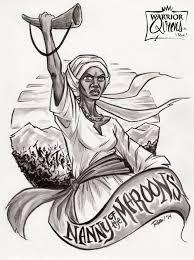
Windward Maroons' Rebellion (1795-1796, Jamaica)
Share
The Windward Maroons' Rebellion in Jamaica was a significant uprising led by Nanny, an influential Maroon leader. The Windward Maroons, descendants of escaped African slaves, fought against British colonial forces in defense of their freedom and autonomy.

The rebellion, centered in the eastern parishes of Jamaica, highlighted the resilience and determination of the Maroons to resist enslavement and maintain their independent communities. Nanny's strategic leadership and knowledge of the terrain proved invaluable in their guerrilla warfare tactics against the British.

The Windward Maroons' Rebellion had a lasting impact on Jamaica's history. Following a series of fierce battles and negotiations, the British signed the Treaty of Accompong in 1739, granting autonomy and land rights to the Maroons. This treaty became a significant milestone in the fight against slavery and the recognition of Maroon rights.
The legacy of the Windward Maroons' Rebellion and the subsequent treaty continues to resonate in Jamaica today. The Accompong Maroon Festival, held annually in January, celebrates the courage and triumph of the Maroons. It serves as a reminder of the importance of preserving cultural heritage and the ongoing struggle for social justice.
